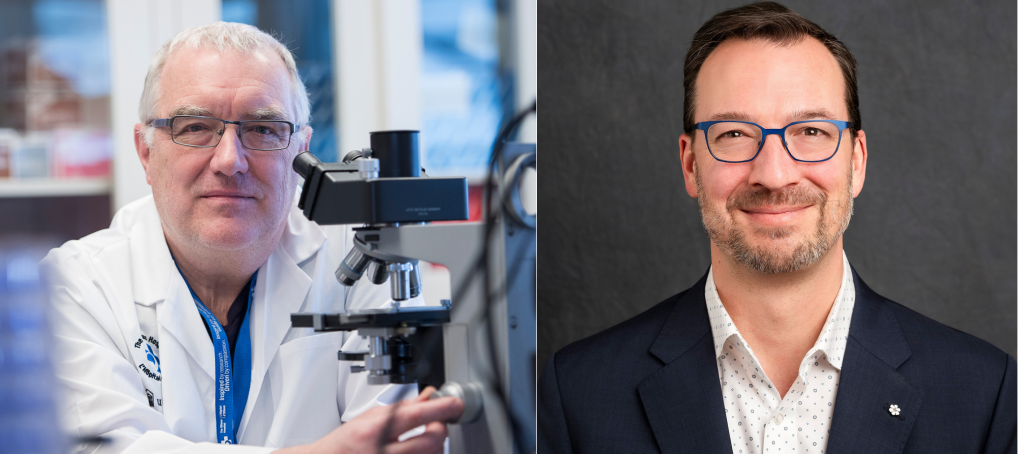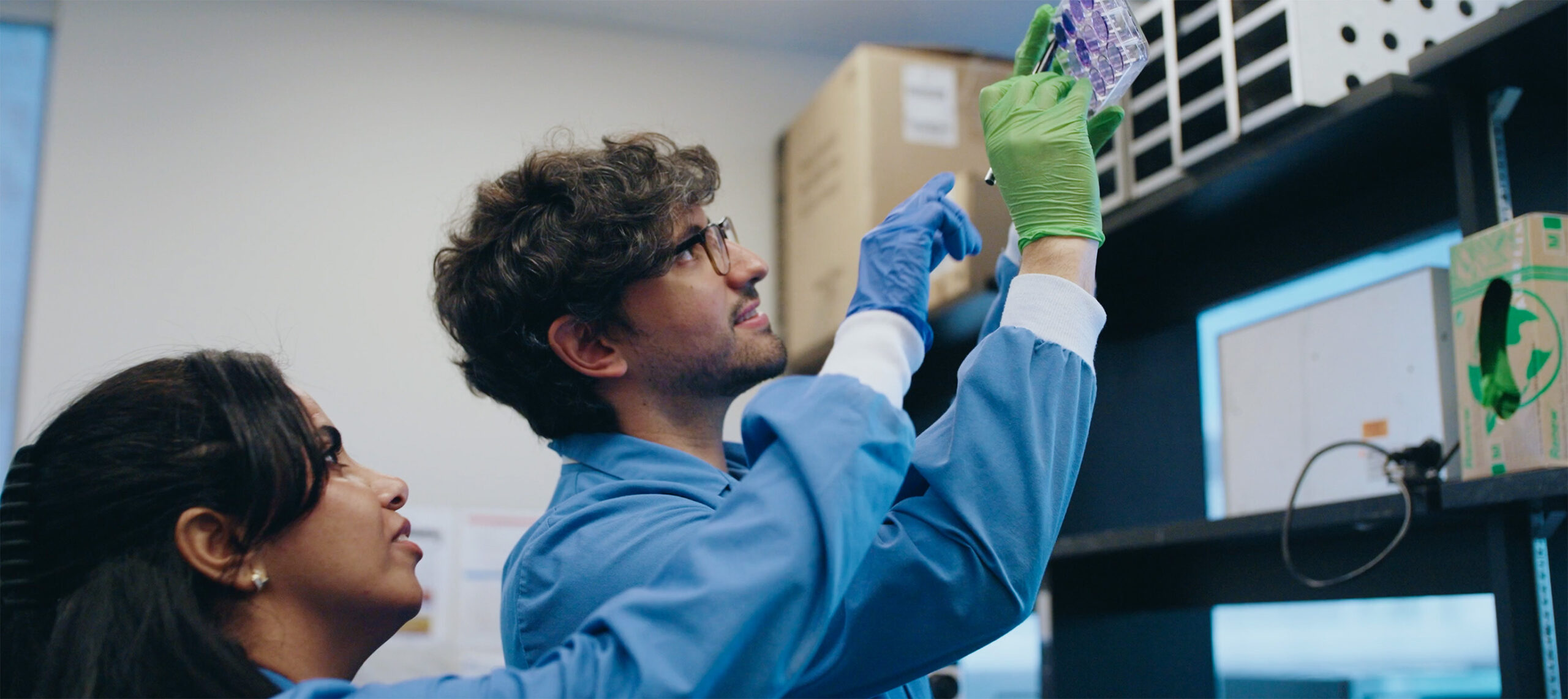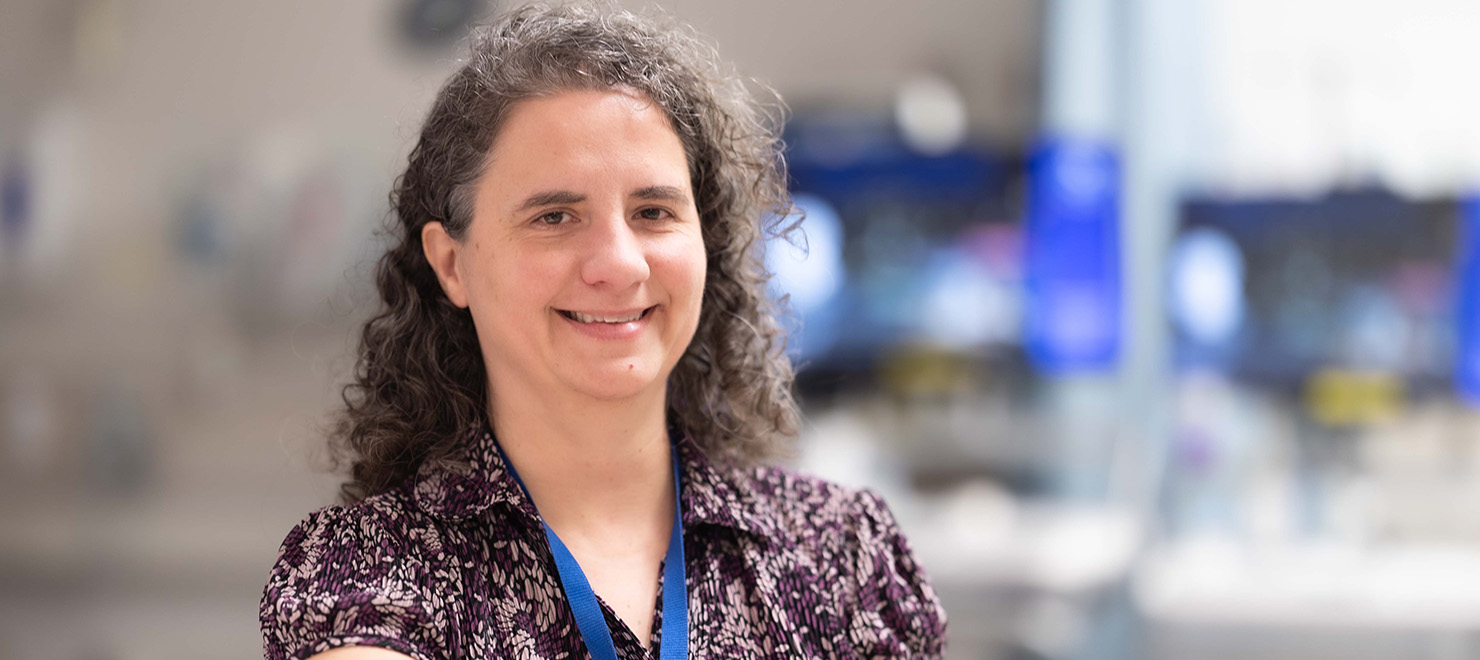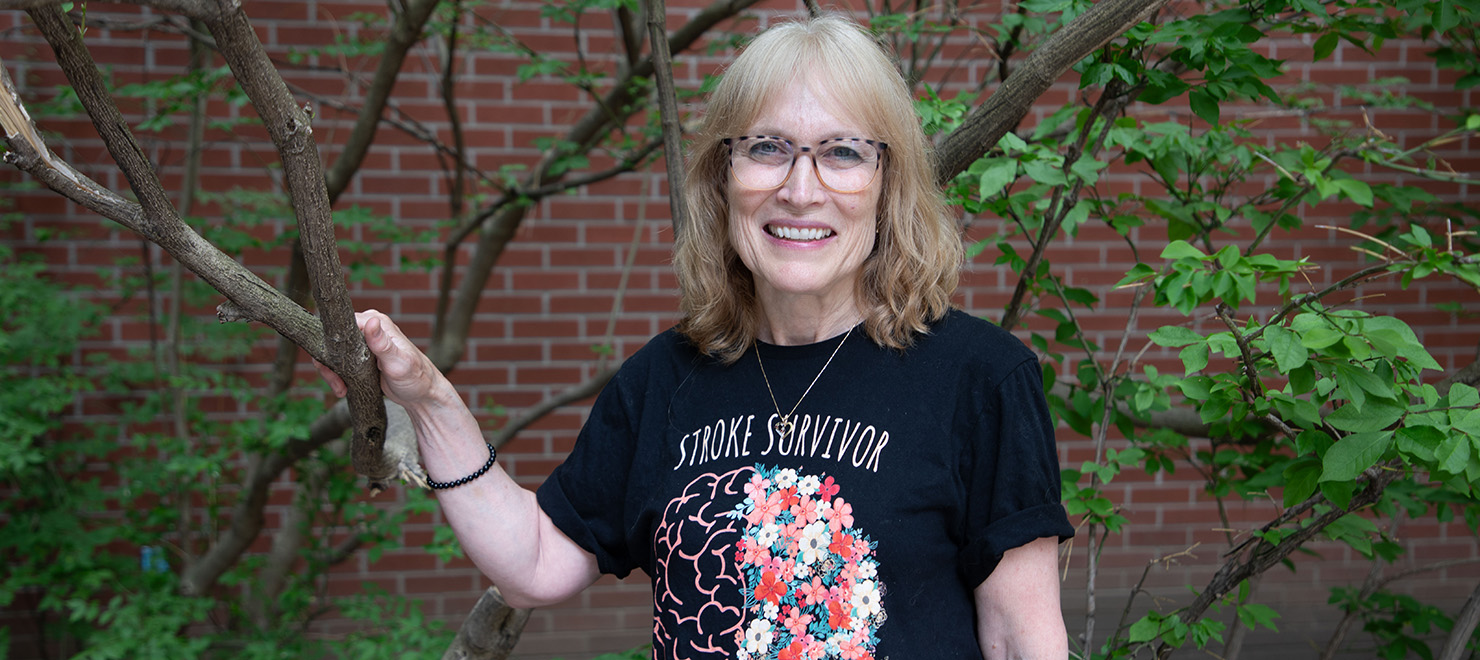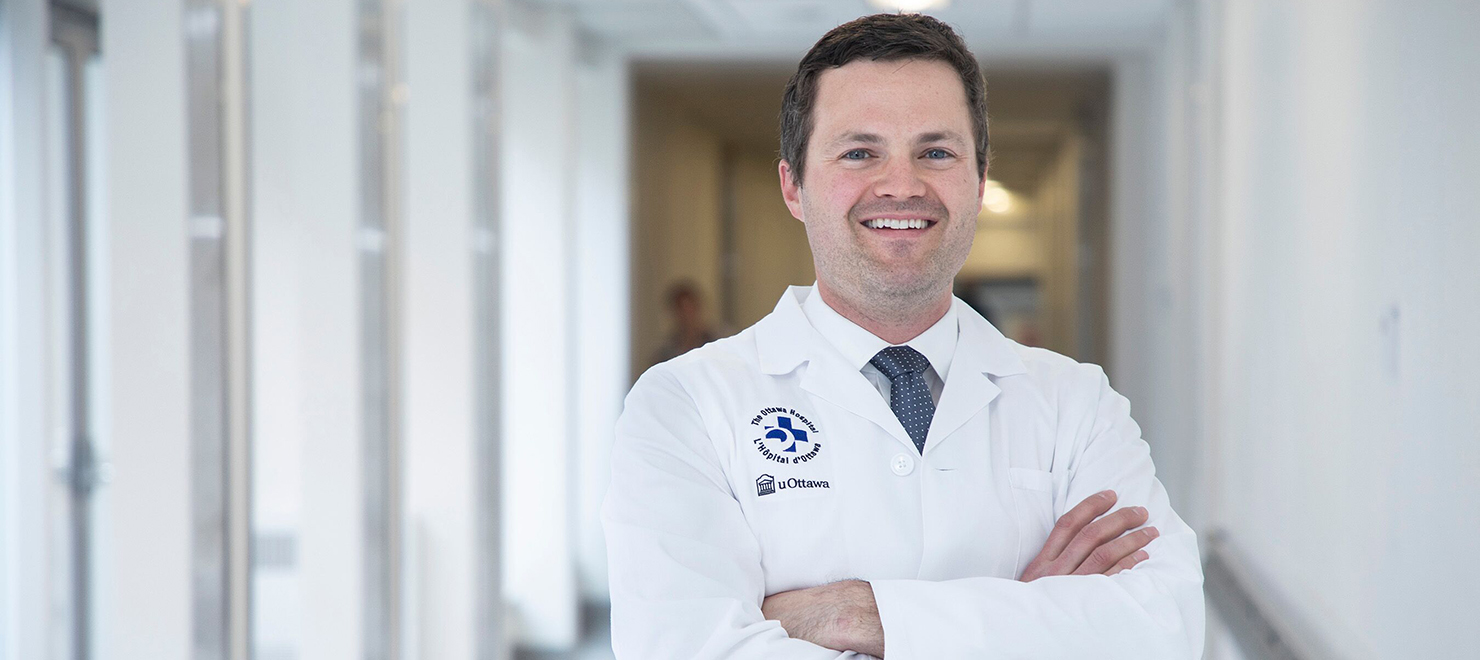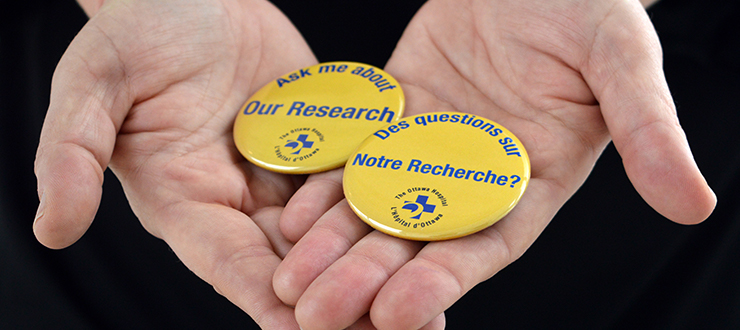
The Ottawa Hospital is launching a campaign to make research more visible and accessible to patients. Clinical Research Facilitator Tammy Beaudoin is leading the charge with colourful buttons inviting patients to ask staff questions about research.
When people first arrive at The Ottawa Hospital, research is often the last thing on their minds. Yet research gives every patient the power to improve health around the world.
“People often don’t realize that taking part in research can be as simple as filling out a survey, or donating a blood sample,” said Tammy Beaudoin, Clinical Research Facilitator.
That’s why a new campaign called “Ask me about our research” aims to make research at The Ottawa Hospital even more visible and accessible for patients.
The Ottawa Hospital is one of the top research hospitals in Canada, and patients are a key part of the team. Without their help, researchers would not be able to come up with new treatments or learn more about diseases and conditions.
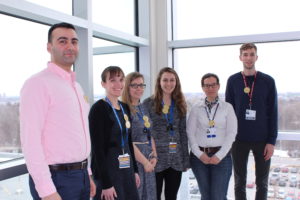
Look for the trained research ambassadors wearing yellow “Ask me about our research” buttons. The ambassadors can answer questions from patients and point them in the right direction. Patients can also ask their doctors and nurses about research.
“Taking part in research is an act of generosity and compassion,” said Beaudoin. “Every patient has the potential to improve our knowledge and how we care for future generations.”
On average, more than 11,000 patients take part in research at The Ottawa Hospital every year. Some try new treatments, while others do interviews or let researchers study their health over time. Other patients ask hard questions and inspire new studies.
As part of the Ask Me campaign, research ambassadors wearing yellow buttons are trained to answer questions from patients and point them in the right direction. Patients can also ask their doctors and nurses if there are any studies they can help with. There isn’t always a study that fits their situation, but it never hurts to ask.
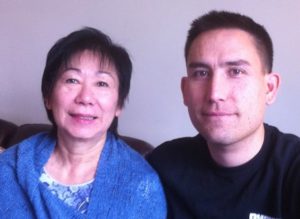
Triathlete Mark Hartley, who took part in a study that tested drugs used to prevent infections after kidney transplant, received a kidney transplant from his mother, Ruth (left).
Patients take part in research for different reasons. Some hope to learn more about their own health, or help patients facing similar situations. That was the case of triathlete Mark Hartley, who took part in a study that tested drugs used to prevent infections after kidney transplant.
“I wanted to participate in the study because I knew I would get closer monitoring, and I also liked the idea of helping to improve care for future transplant patients,” he said.
“It may not seem like a big deal to say ‘yes’ when a registration clerk asks if you will agree to be contacted about possible research studies, but it means the world to our researchers,” said Beaudoin. “Patients often find it empowering to be a part of research that improves care for others.”
Learn more about taking part in research at The Ottawa Hospital. Training is available to hospital staff and volunteers interested in becoming research ambassadors.

Support patient care and research at
The Ottawa Hospital
You might also like…
Dr. John Bell and Stephen Beckta inducted into the Order of Canada
The Ottawa Hospital is proud to share that on December 31, 2025, two members of our team were inducted into the Order of Canada. Congratulations Dr. John Bell and Stephen Beckta.
Everyone at our hospital plays a role in research. Here’s how
It’s Research Week at The Ottawa Hospital. Check out this video to hear from some of the incredible people fuelling our discoveries that are having an impact around the world.
Living with chronic pain? This online tool offers help — and hope
The Power Over Pain Portal is a free virtual resource hub designed to help empower youth and adults living with chronic pain through education and peer support.
From survivor to supporter: Peer volunteers bring hope to patients recovering from stroke
Drawing on their own lived experiences as stroke survivors or caregivers, volunteers with March of Dimes Canada’s After Stroke Hospital Peer Connections program offer emotional support to those just beginning their recovery journey. Discover the difference they’re making and learn about how you can request support for a loved one — or become a beacon of hope yourself.
Do you have a surgery coming up? Here are five “prehab” tips to help you recover faster
You’ve probably heard about rehabilitation, but what about “prehabilitation”? Prehab is all about getting your body and mind in top shape before surgery so you can enjoy a smoother, quicker recovery. Discover five essential prehab strategies from researcher Dr. Daniel McIsaac.
Sign language interpretation services at The Ottawa Hospital: 5 FAQs
Do you require a sign language interpreter when you come to The Ottawa Hospital? For patients who are Deaf or hard of hearing, we provide both American Sign Language (ASL) and Langue des Signes Québécoise (LSQ) interpretation services at no cost. Before your next appointment with us, find out everything you need to know.


 To reset, hold the Ctrl key, then press 0.
To reset, hold the Ctrl key, then press 0.
